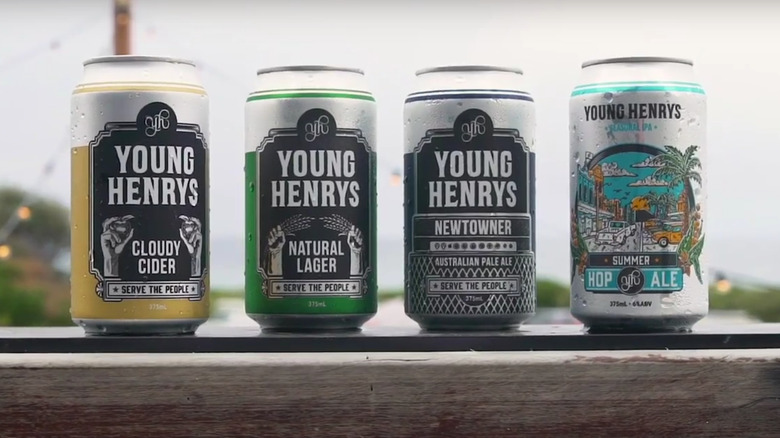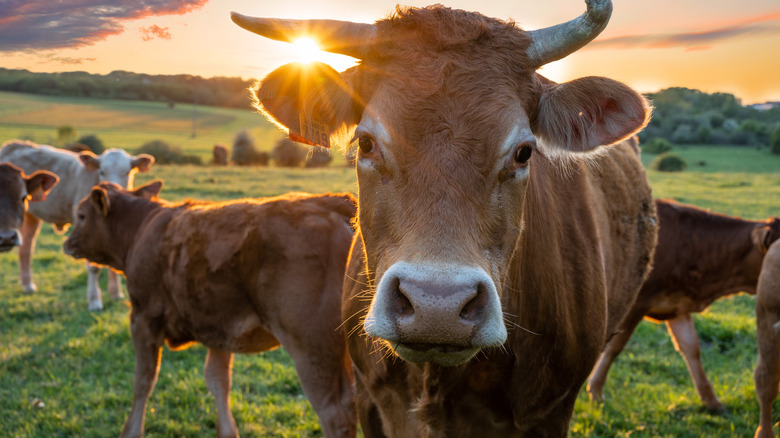How One Australian Brewery Is Trying To 'Fix The Planet'
When a company sells not only a product but a purpose, it can add an incentive to choose that brand, especially if you appreciate the company's cause. For example, buying coffee beans from Peet's Coffee means you're also supporting a farmer assistance program, per the Peet's Coffee website. And purchasing honey from the Savannah Bee Company is also helping protect the honey bees (via Food & Wine).
There are also beer makers that want to make a positive difference, and Young Henrys Craft Brewery in Newtown, Australia is one of them. The company cuts its output of the greenhouse gas carbon dioxide (CO2) during fermentation by using algae to consume it and produce oxygen in the process. Young Henrys has been recognized as the world's first brewery to do this (via the Australian Broadcasting Corporation).
The carbon dioxide consumption is part of a larger initiative that the beer brand calls The Algae Project, whose mission includes significantly decreasing methane emissions from livestock. Livestock-produced methane is among the largest sources of pollution on the planet, and the majority of Australians consume beef (per Young Henrys). When cows burp, it releases methane. The Young Henrys Algae Project seeks to eventually curb the amount of methane created by incorporating algae into the bovines' diets.
Young Henrys is working with scientists to help reduce pollution
You'll notice on Young Henrys Twitter account that the company is serious about beer, gin, whiskey, cider, and music. However, it is even more obsessed with saving the planet. The founders of the company are working together with climate change scientists at the University of Technology Sydney (UTS) in an effort to use micro-algae to lower the levels of methane emitted by livestock (via the Australian Broadcasting Corporation).
It is reported that scientists have high hopes to achieve a 20% decrease in cow-produced methane, and once perfected, the researchers and founders believe this method can be easily introduced and implemented worldwide. UTS professor and head of the school's climate change cluster Peter Ralph believes that "all of this is critical to reducing our carbon footprint and fixing the planet."
Young Henrys brewery co-founder Richard Adamson explained that the ultimate goal is to employ the program in all breweries, which will "have a significant impact on CO2 emissions in brewing and also, hopefully, methane emissions in agriculture." In addition to supporting a healthier planet, the brewery claims it will rely entirely on renewable energy by the end of 2021 (via the Young Henrys website).

